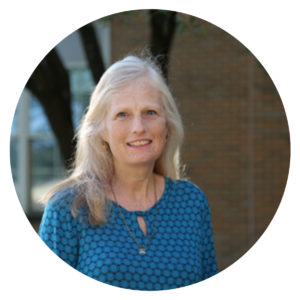
Michelle D. Cude
Executive Director, Chair of USA Board
Originally from California, Michelle Cude graduated from UC Berkeley with a history degree and came east to work in the museums field before her teaching career. She worked as a character interpreter and program designer for 4 years at Colonial Williamsburg. Returning to her first love of teaching, she relocated to teach middle school US history in Fairfax County for nine years. Turning to teacher education to have a greater impact, Michelle earned her Ph.D. in social studies education at University of Virginia. Her dissertation was on civic education in St. Petersburg, Russia, written while living there—with her adopted daughters—for 9 months (yes, through the winter!).
As a Fulbright Scholar in Kenya for 2017-2018, she enjoyed researching and teaching at Maasai Mara University while living and working at the Nasaruni Academy. Currently, she enjoys teaching future social studies teachers at James Madison University, in Harrisonburg, Virginia, especially in cultural competencies and global education. She emphasizes the power of an individual’s actions to change the world.


